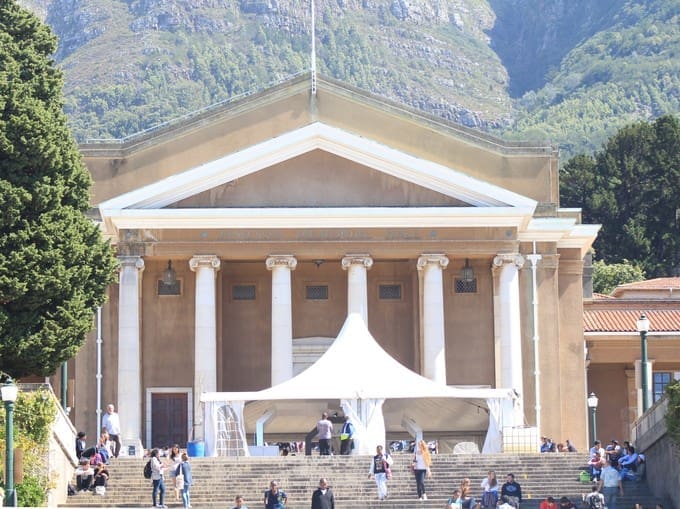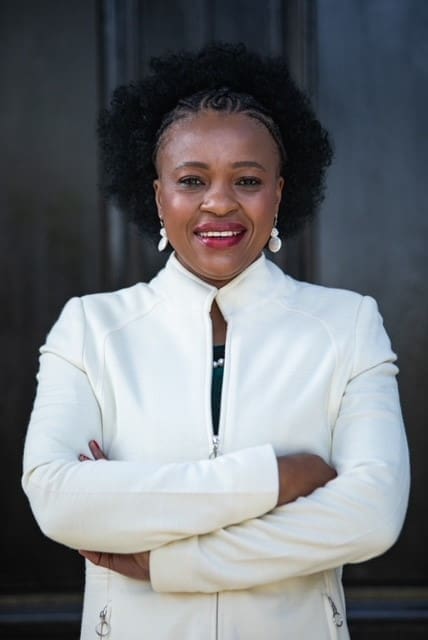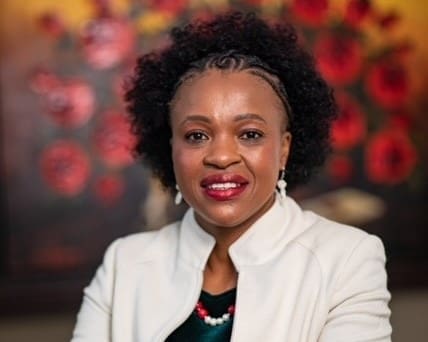The Chairperson of the University of Cape Town Council, Babalwa Ngyonyama, has resigned from her position with immediate effect.
In a statement on 22 May, Ngyonyama said the decision to resign from her position did not come easily to her, but was taken after “careful consideration and thorough deliberation” and taking into account the current circumstances of her well-being and health.
Last year, the UCT Council decided to set up an independent investigation panel to investigate issues of university governance.
The panel consists of Judge Lex Mpati (chair), Judge Azhar Cachalia, Dr Bernadette Johnson and Dr Patricia Hanekom.
Ngonyama’s resignation follows the panel’s recommendation that she be dismissed immediately.
In a statement, Ngonyama said she had always supported the work of the panel.
“I wish to also state, as I always have, that I remain committed to the work of the panel and I have always been unwavering in my willingness to appear before and cooperate with the panel,” she said.
However, Ngonyama argued that “it was one thing to focus on improving governance at UCT, it is a completely different matter to use the process in an attempt to lay blame”.
She said that the fact that the panel had denied her access to the statements made against her “violates a fundamental principle of procedural fairness”.
“As part of the process and in the interest of procedural fairness, but also to ensure efficiency in how the claims made against me are addressed, I requested that I be furnished with the statements of the individuals beforehand,” said Ngonyama.
“The request was made so that I could thoroughly respond to them and be afforded an adequate opportunity to address them. I also requested that I be allowed to cross-examine the witnesses as part of testing the allegations against me. I was not afforded that courtesy.”


See the full statement below:
As part of the process and in the interest of procedural fairness but also to ensure efficiency in how the claims made against me are addressed, I requested that I be furnished with the statements of the individuals beforehand. The request was made so that I could thoroughly respond to them and be afforded an adequate opportunity to address them. I also requested that I be allowed to cross examine the witnesses as part of testing the allegations against me. I was not afforded that courtesy.
It is important for any person appearing before the panel who needs to respond to claims against them to be given access to any statements or evidence presented by those making the claims against them. Unfortunately, the panel has been unwilling to grant me this opportunity, which conflicts with a basic tenet of procedural fairness.


In response to this, I requested the Western Cape High Court to decide on the fairness of the process and the nature and extent of the panel’s powers under the revised terms of reference, the Institutional Statute and the Higher Education Act. This prompted the panel to release a pre-emptive interim report to Council, recommending that steps be taken to remove me as Chair.
As you are all aware, we as a university traversed a very difficult period since late 2022 until the first few months of this year. We have jointly with all the relevant stakeholders, worked tirelessly towards bringing the calm and stability that currently prevails.
We have spared no effort in ensuring that the governance-related issues are addressed, albeit that the process remains ongoing, and ensuring that the academic project proceeds and that the university continues to take its rightful place as a leading university in Africa.
Taking up this role is one that provided me the opportunity to serve South Africa, and the many leaders and young minds that have walked through our doors. It is a role that required selfless servitude towards building a better South Africa. It would be a disservice to see a situation where the university returns to the days of instability or sections within the university once again becoming polarised by this matter. It is for this reason that I have concluded that it was best for me to resign and deal with this matter outside Council through the available legal mechanisms. My hope is that this will enable this matter to receive the requisite attention while the academic project continues. It is important that the climate and environment of stability is maintained at the university.
Pending the resolution of the contested issues, I remain willing to cooperate with the work of the panel as it presents UCT with an opportunity to address the challenges that beset the university. What is important is that fairness, transparency, justice and due process prevails.
It is pleasing that during my tenure, the university was able to deal with some huge challenges, and has continued to rise globally. First, we had to navigate the monumental impact of the COVID-19 pandemic with the rapid ramping up of virtual lectures and online interactions, as well as providing our students with assistance and wellness support. Then came the fire in April 2021, where the university suffered significant damage not only in infrastructure, but also in records of historic significance. This required focused and dedicated leadership together with the full leadership of the university.
During this period, UCT also launched the landmark Online High School together with Valenture Institute. We have continued to embark on the vision to unleash potential and create a fair and just society. We saw recently the university continuing to take its rightful place as a leading institution on the continent, as evidenced by UCT retaining its top spot on the Centre for World University Rankings (CWUR). This is something to be proud of, and a cause for celebration. Even in trying times, the academic project remains a shining light and success.
The CWUR ranking meant that UCT remained the top ranked university in Africa on all five major global rankings. In October 2022, UCT climbed 23 places globally on the World University Rankings published by Times Higher Education, sitting in 160th place. Last year, UCT took the continent’s top place in the Quacquarelli Symonds World University Rankings, Shanghai Ranking’s Academic Ranking of World Universities and US News & World Report Best Global Universities Rankings.
I remain grateful for the opportunity to have been part of the leadership of this great university, and hope that my contribution during the two terms I served on Council has gone some way towards elevating UCT to higher levels in the higher education landscape. We must protect the integrity of this beloved institution, as difficult as it may be. It has been an honour to serve the University of Cape Town wholeheartedly.
Sincerely
Babalwa Ngonyama, CA (SA), MBA Chair of UCT Council
